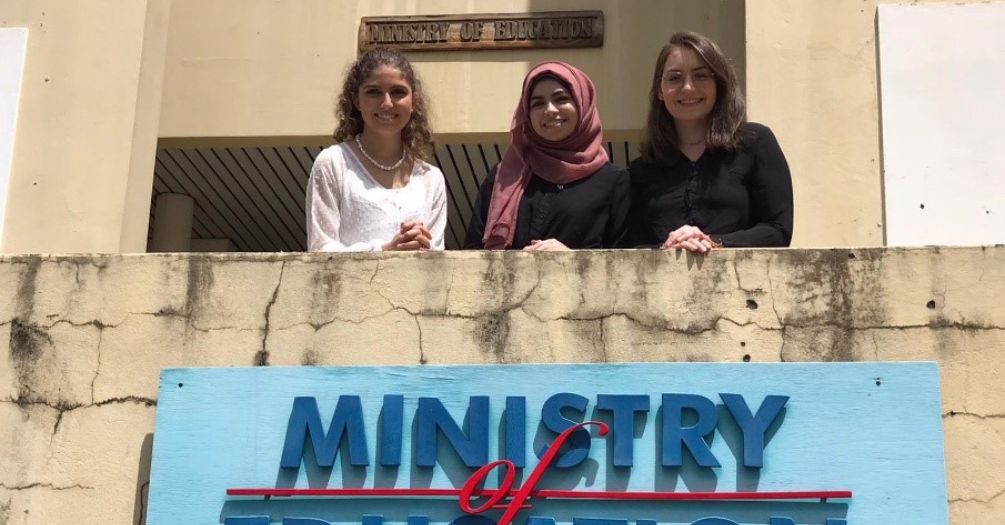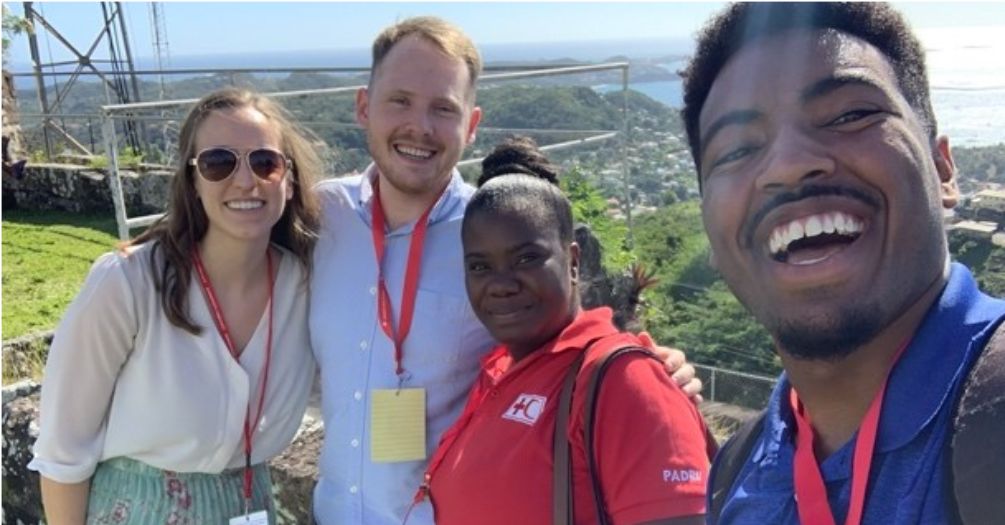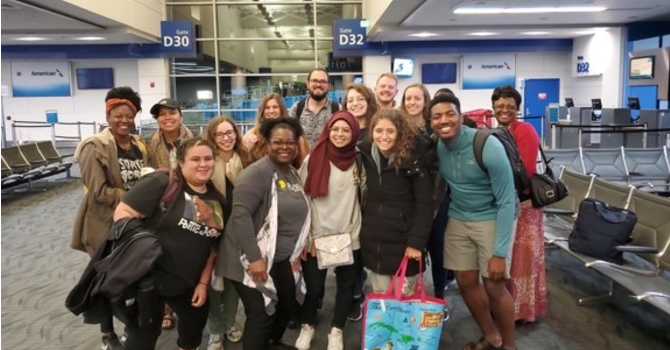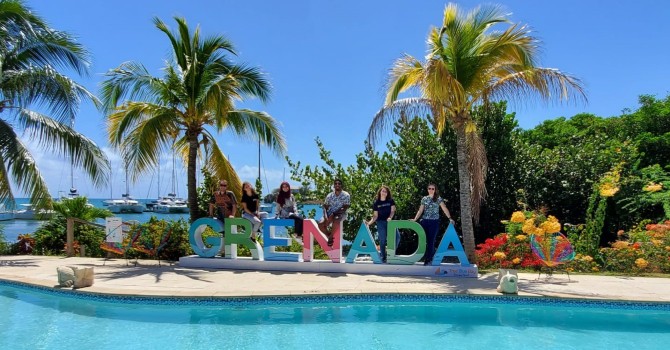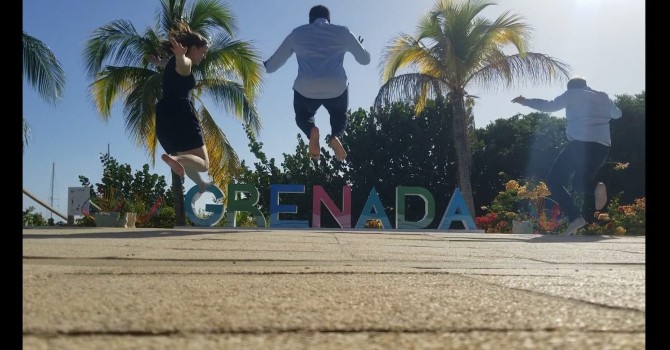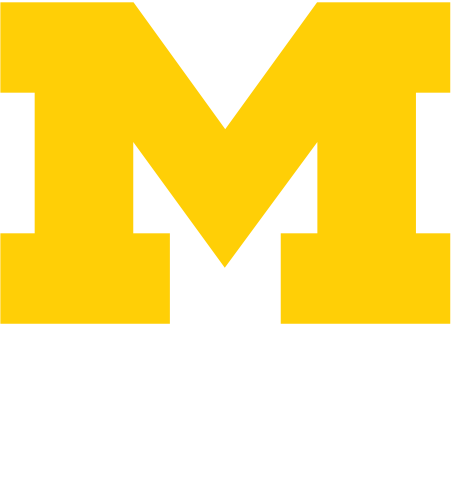This is Home
Danie Harris, Undergraduate Public Health Student
May 7, 2020, Aging, Community Partnership, Health Care Access, Health Equity, Mississippi, Practice
Note: This blog post reflects project work from PUBHLTH 615, a course originally designed to culminate in a week-long field experience that was changed to virtual format due to the COVID-19 outbreak. While students did not travel to Mississippi for the traditional field experience this semester, they were still able to work on the project remotely.
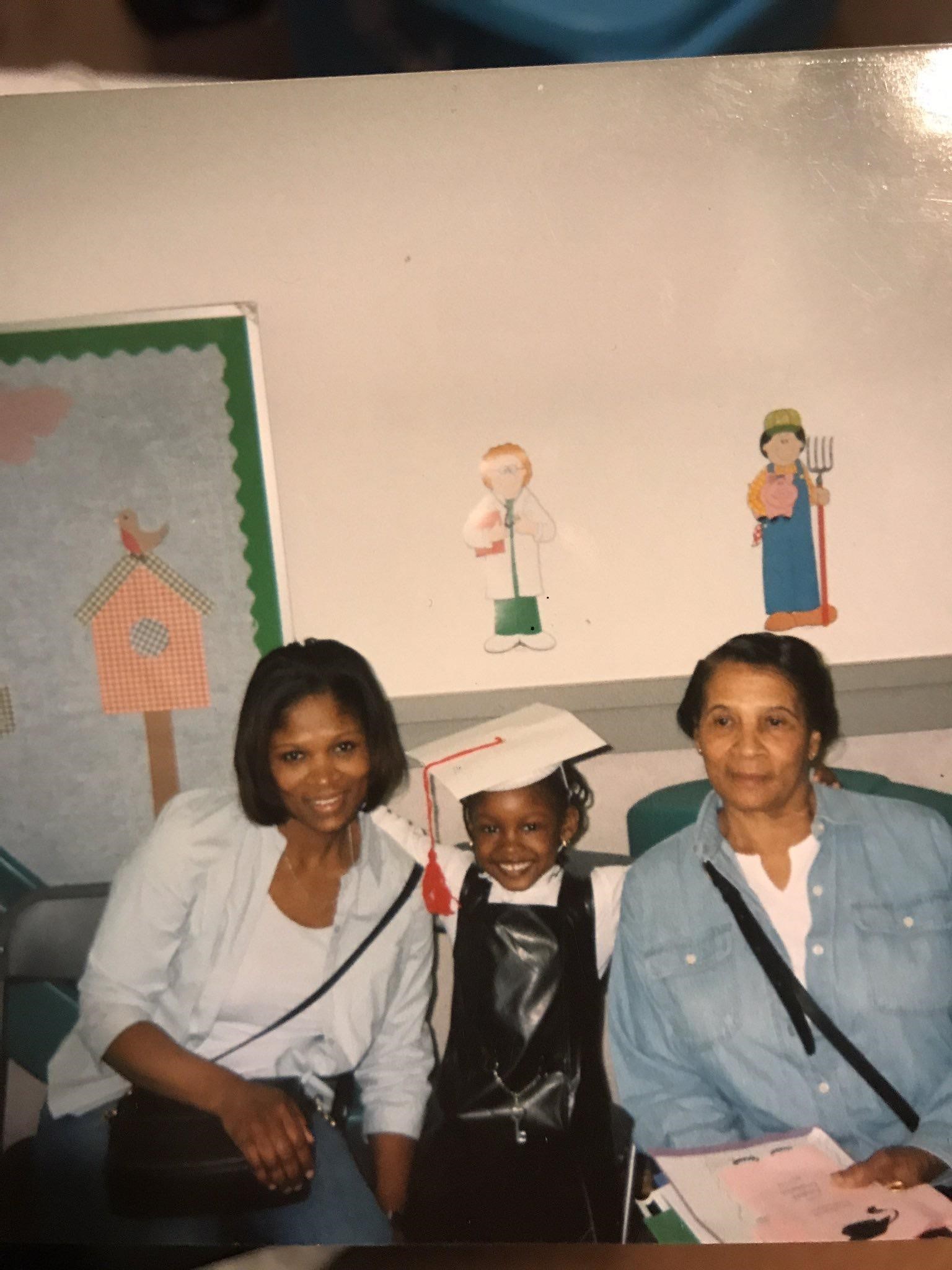 (My mother, myself, my grandmother at my preschool graduation, 2002)
(My mother, myself, my grandmother at my preschool graduation, 2002)
Working on this project for Coahoma County, Mississippi has been nostalgic for me. It brings me back to when I was eight year old and I was walking down the dirt roads of where my grandmother grew up. Every other year my grandmother and my family all went down to Philadelphia, Mississippi for grandma’s high school reunion. This was always my favorite trip we went on together. There was always something that felt happy, free, and extra special about Mississippi. I always met new family members, learned something else about my grandma’s history, and I appreciated the change of pace from what I experienced in Chicago.
However, at eight years old, I was not aware of the racism, health disparities, and inequities that faced residents in Philadelphia, or other places like Coahoma county. Since beginning this project I have learned that residents in Coahoma County have disproportionately high rates of chronic disease and mortality. Through this project we are hoping to analyze the social determinants that are affecting older adults in Coahoma county, the needs as well as the assets present in the community, and to adapt tools to address their needs. In Coahoma county, a large majority of the population is low income and there is a lack of food access, a lack of access to health insurance and a lack of access to healthcare facilities. These factors lead to high rates of poor health outcomes such as diabetes, obesity, cardiovascular disease, and cancer.
While these health concerns are important, it is important to not solely characterize communities by their issues. Even now, 13 years later, I still remember Mississippi as a happy, free, and special place. I remember how loving and caring people were when we visited. I remember the important history that I learned while I was there. I remember how happy my grandma was to go back to where she came from and let us experience this part of her life. This was her home.
When I was 13 years old my grandmother passed away from colon cancer. Her death is what inspired me to pursue public health. I wanted to be able to address the systemic factors that are causing minority populations to have these high rates of poor health.
While the class was not able to travel to Coahoma county due to Covid-19, we still were able to gain valuable skills and learn many great lessons. I have learned that it is important, when engaging with communities, to always remember that this is their home. While we may be there to help them address various community and health concerns, we have to remember that the people we are working with are actual people and not just statistics. They are people with families, jobs, a history, and each one of them is unique. It is our job to respect people as we are visitors in their home. We can not define a community by what it is lacking but rather, by the unique qualities that make it special. By recognizing what is positive in these communities, we can utilize these things to find solutions to the concerns that are present. By working positively with community members, we can help them create the best home for themselves.

